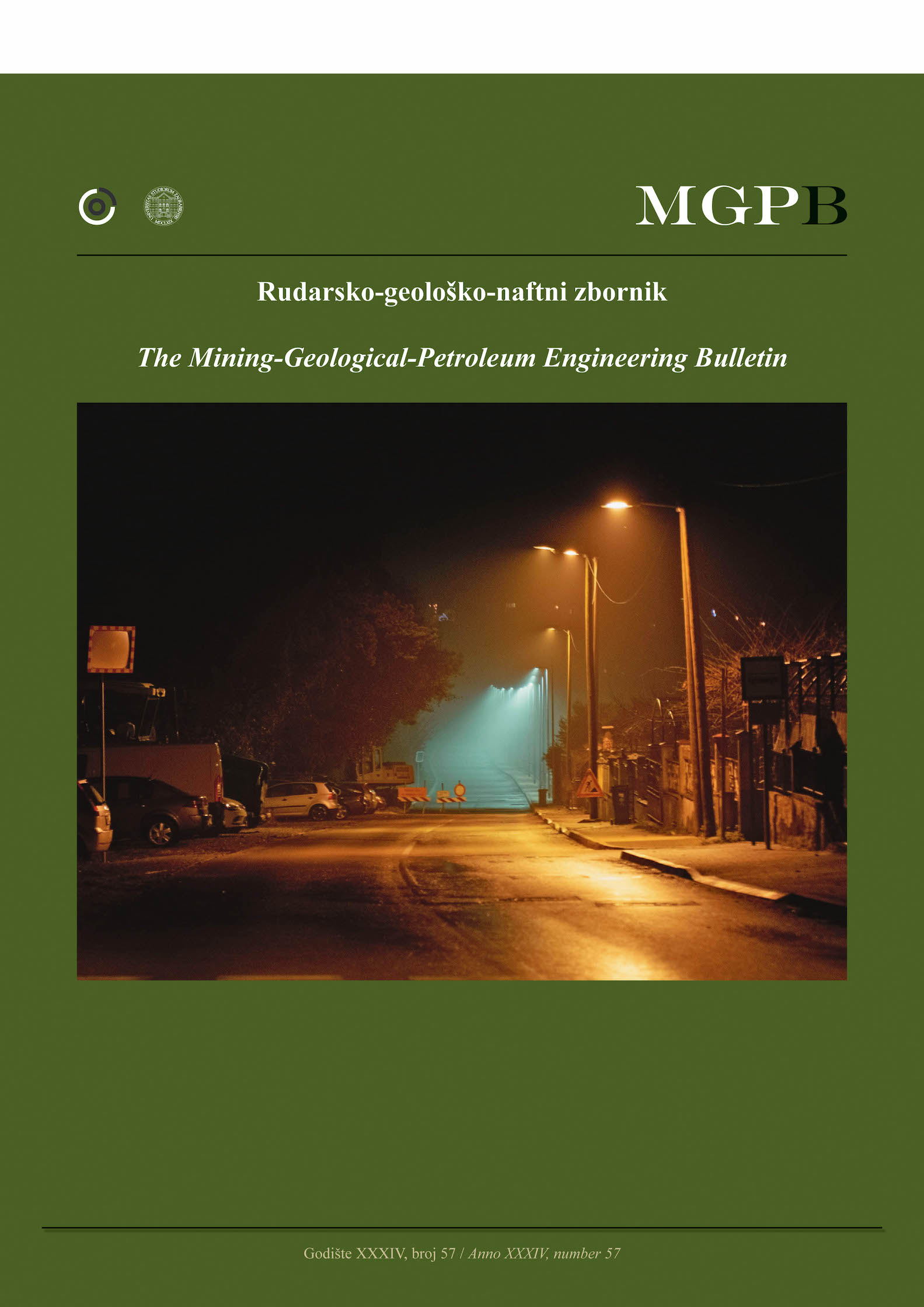Experimental Evaluation of Locally Synthesized Biodiesel Drilling Fluid
DOI:
https://doi.org/10.17794/rgn.2022.1.10Keywords:
biodiesel, rheological properties, filtrate loss, emulsion stability, thermal stability, acute toxicityAbstract
Diesel oil has been the preferred base fluid for the formulation of oil-based drilling mud. Diesel oil has negative effects on the environment and there is a growing need for more environmentally sustainable alternatives that can be technically compared to diesel base oil. In recent times, the use of vegetable oils as drilling fluid base oil has been of interest. In this study, 1378 kg/m3 of palm kernel oil-base mud (PKOBM) and palm kernel oil biodiesel base mud (BDBM) were experimentally formulated. The BDBM was synthesized by the transesterification of vegetable (palm kernel) oil. The performance of PKOBM and BDBM was then evaluated against conventional diesel oil-base mud (DOBM). The evaluation performed was based on the rheological, filtration and wall building properties, emulsion and thermal stabilities, and acute toxicity of the formulated drilling fluid systems.Results obtained from the study reveal that the mud systems (PKOBM and BDBM) show a typical Herschel-Bulkley (modified power-law) drilling mud rheological pattern at temperatures of 49 oC, 66 oC and 80 oC. BDBM showed comparable rheological properties with better hole cleaning capacity as indicated by a lower flow index. For the filtrate loss test, BDBM exhibited slightly lower filtrate loss of 3.2 ml compared to DOBM with 3.2 ml, whereas PKOBM had a higher fluid loss of 4.4 ml. For the filter cake and thermal stability test, there were no significant changes between DOBM and BDBM whereas PKOBM had the least desirable performance. BDBM exhibited the most stable emulsion of 1274 volts breaking voltage and PKOBM, least with 739 volts compared to 1169 volts breaking voltage of DOBM. This study concludes that BDBM could be used as an environmentally sustainable substitute for diesel oil-based mud (DOBM).
Downloads
Published
How to Cite
Issue
Section
License
Copyright (c) 2021 authors and journal

This work is licensed under a Creative Commons Attribution 4.0 International License.
Creative Commons-BY
Authors who publish with this journal agree to the following terms:
In agreeing this form, you certify that:
- You read the ethical codex of the RGN zbornik available at journal web.
- You submitted work is your original work, and has not previously been published and does not include any form of plagiarism.
- You own copyright in the submitted work, and are therefore permitted to assign the licence to publish to RGN zbornik.
- Your submitted work contains no violation of any existing copyright or other third party right or any material of an obscene, libellous or otherwise unlawful nature.
- You have obtained permission for and acknowledged the source of any illustrations, diagrams or other material included in the work of which you are not the copyright owner.
- You have taken due care to ensure the accuracy of the work, and that, to the best of your knowledge, there are no false statements made within it.
- All co-authors of this submitted work are aware of, and in agreement with, the terms of this licence and that the submitted manuscript has been approved by these authors.
Publication licence
You retain copyright in your submitted work, according to journal license policy (CC-BY). By signing this form you agree that RGN zbornik may publish it under the publication licence. In summary the licence allows the following:
Anyone is free:
- To copy, distribute, display, and perform the work.
- To make derivative works.
Under the following conditions:
- The original author must always be given credit.
- The work may not be used for commercial purposes.
- If the work is altered, transformed, or built upon, the resulting work may only be distributed under a licence identical to this one.
Exceptions to the licence
In addition to publishing the work printed under the above licence, RGN zbornik will also enable the work to be visible online.
The journal editorial can change the licence rules anytime but it cannot retroactively restrict author(s) rights.


